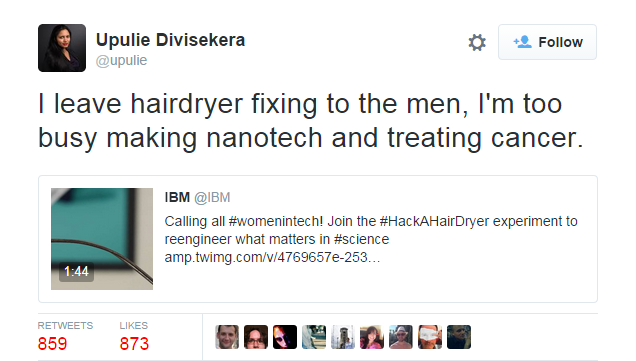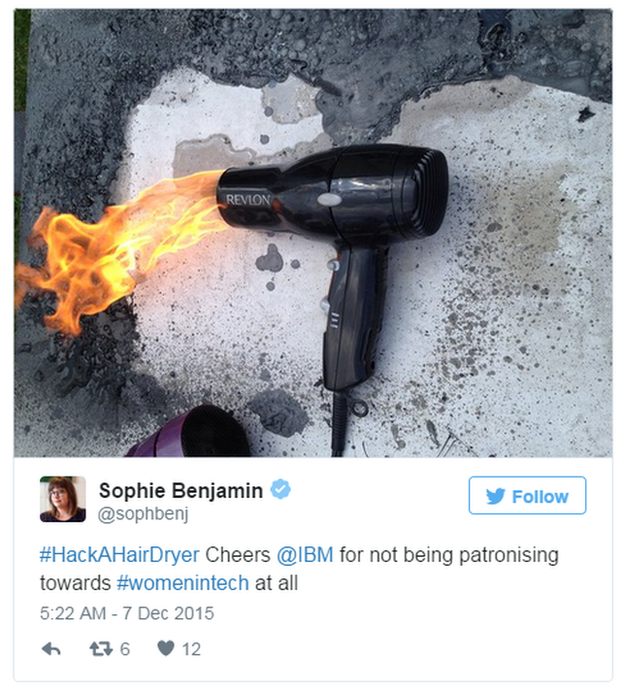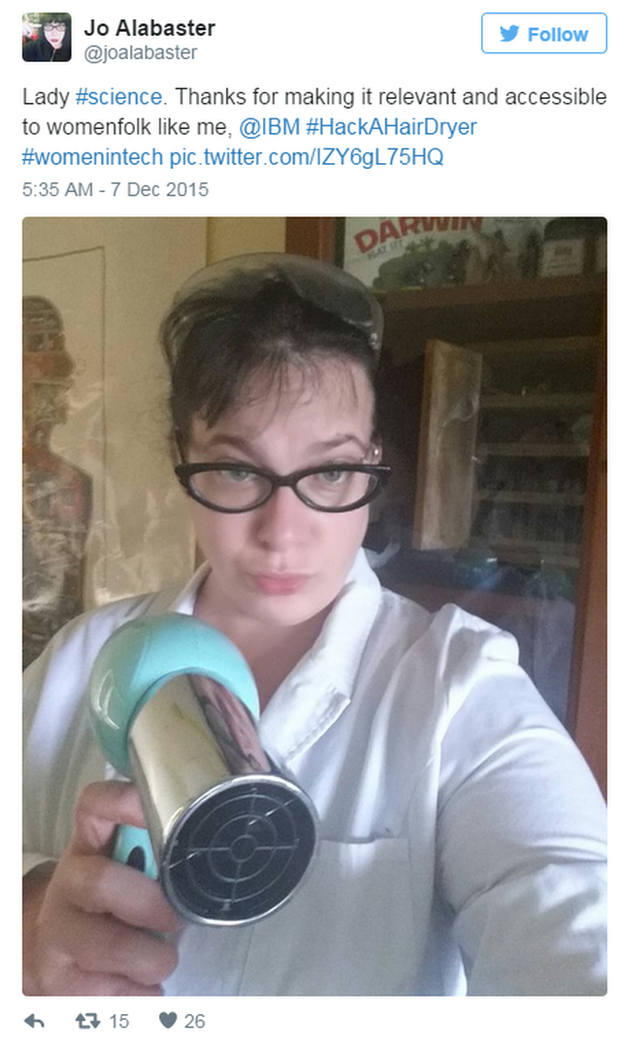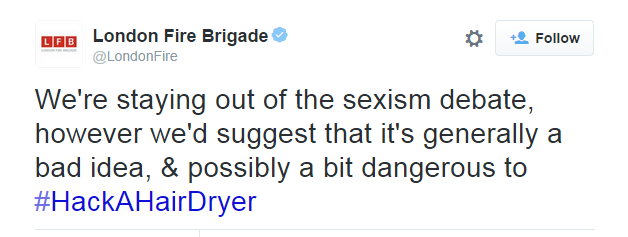Hack a hairdryer: Campaign aimed at women suddenly backfires
- Published

A screenshot from IBM's "hack a hairdryer" campaign, which the company now says will be discontinued
After running for a couple of months more or less unnoticed online, IBM's "hack a hairdryer" campaign suddenly attracted a barrage of criticism by Twitter users who called it patronising and sexist - and the company has now apologised.
A video created by American computing giant IBM aimed to "reengineer misperceptions about women in tech, and to focus on what really matters in science". Women working in science and tech were asked to "hack a hair dryer", then share their work on the IBM website.
The video was posted on YouTube in early October. It failed to grab much social media attention at the time, but on Monday a number of scientists, most of them female, started tweeting their reactions. Unfortunately for IBM, most of them were not positive.

The hashtag racked up close to 5,000 mentions in just a few hours. One of the most popular tweets was by the engineer and rocket scientist Stephanie Evans:

"The #HackAHairdryer campaign is a poorly designed attempt to inspire women to pursue STEM (science, technology, engineering and mathematics) careers due to the fact that it reinforces gender stereotypes," Evans told BBC Trending. "Getting women interested in STEM is as simple as making educational resources readily available for them to freely pursue their interests without being placed in a glittery, pink box."

Follow BBC Trending on Facebook
Join the conversation on this and other stories here, external.

Others called the campaign patronising, and many of the messages deployed sarcasm to make a point:


Amid the outcry, IBM apologised, tweeting out later on Monday, external: "This was part of a larger campaign to promote STEM careers. It missed the mark and we apologize. It is being discontinued." The original video has since been removed, external
Meanwhile, London Fire Brigade took the opportunity to issue an important safety reminder:

Blog by Ed Prendeville
Next story: Why do trolls go after feminists?

After a man was sacked from his job for sending an abusive message, a feminist blogger found herself on the receiving end of a wave of abuse. So why do many hard core internet trolls target women, and feminists in particular? READ MORE
You can follow BBC Trending on Twitter @BBCtrending, external, and find us on Facebook, external. All our stories are at bbc.com/trending.